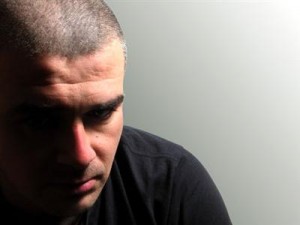Several months back I interviewed Jason Vallotton, a man who became familiar with pain and devastation after his wife, Heather, announced she was leaving him for another man. In his book The Supernatural Power of Forgiveness, Jason uses his own story as a poignant, touching illustration of God’s grace and healing, and invites readers to redefine their understanding of redemption.
Tell me about your story that led you to write the book.
Jason Vallotton: The long story short is I grew up in a really good home, got married when I was 18 years old, right out of high school to my high school sweetheart, which is awesome. And I had kids really young, I started having kids [at 19 years old], so life was going really good.
 About nine years into our marriage I realized I don’t feel really connected, I don’t feel really close to her right now, which isn’t terribly uncommon if you’ve been married any amount of time. It’s not uncommon to feel some kind of disconnection. The more I pursued her, the further away she got. And I started to realize, “man, there’s something wrong here”. Over a course of about four months she got further and further away, indicating that with what she was saying too “I don’t want to be with you” and “I don’t feel like we have passion.” Things like that, which is really hard. I mean, just crazy. By this time we have three kids and I’m in Ministry, and so eventually after about four months I found out that she had somebody else that she was seeing and from then on, here comes the book as far as the pain. And “what am I going to do?” is the initial feeling. “My wife just left, I have three kids. How are they going to handle this? And how am I going to handle this?” I didn’t even know what to do.
About nine years into our marriage I realized I don’t feel really connected, I don’t feel really close to her right now, which isn’t terribly uncommon if you’ve been married any amount of time. It’s not uncommon to feel some kind of disconnection. The more I pursued her, the further away she got. And I started to realize, “man, there’s something wrong here”. Over a course of about four months she got further and further away, indicating that with what she was saying too “I don’t want to be with you” and “I don’t feel like we have passion.” Things like that, which is really hard. I mean, just crazy. By this time we have three kids and I’m in Ministry, and so eventually after about four months I found out that she had somebody else that she was seeing and from then on, here comes the book as far as the pain. And “what am I going to do?” is the initial feeling. “My wife just left, I have three kids. How are they going to handle this? And how am I going to handle this?” I didn’t even know what to do.
What were your immediate feelings with her and the man she was unfaithful with, as well as your long-term feelings for them?
Jason: Immediate feelings would be: I’m human, I’m angry. I want justice. I wish it was the Wild West. I wish I could go out there and settle it with a bullet. Those are my initial feelings. Crying, really frustrated, [and] really confused. I’m mad for my kids; I’m mad that she would leave them. All that stuff would be an initial feeling that I had to work through.
My long term feelings are “I want the best for her.” What God gave to me I want Him to give to her, as far as wholeness and forgiveness and reconciliation. God reconciled all of us to Him. He gave all of us, in our sin, a way out. He gave us freedom. So that ultimately became my goal with her. Although I’m in pain, even in my pain I still want her to be free. And I want her to be whole. And I want her and him to have a good life. I don’t win if they ruin my life, so those were my short term and my long term thoughts.
Your father is a pastor, so he must have struggled with trying to protect you while helping promote forgiveness. What were the struggles that he went through in this whole process?
Jason: Yeah, my dad is my best friend, so I think he probably carried the brunt of my emotions and feelings and decision making. I talked to my dad everyday for probably close to nine months while I was walking through this and we cried together and that whole deal. I would say that my dad was every bit as emotional as I was. I know that my dad shared the same emotions that I did as a grandfather to my kids and a father to me and to her. In some ways he was a spiritual dad to her and loved her.
When somebody walks out on you it hurts, it hurts on every level, it hurts everybody that’s in a relationship. My dad was included in that, so [my dad] writing the book with me was really the finalization of our journey together. It wasn’t just “Hey dad, I need help”. It was “Hey dad, let’s finish this road together. We’ve walked this far and we’ve really come to a place of wholeness and of healing and our family has come to a place of healing and wholeness. Let’s finish this road by giving away what we’ve learned and where we’ve been to other people.” But even that process was hard, especially for him because he’s having to relive how he felt. I tell my story a lot so I get a lot more used to going, “that was my life and that’s how I felt,” but for him I think it was a little bit harder to go, “this was my kid’s reality and my grandkid’s reality. These are the things that we walked through.”
Check back tomorrow for the rest of the interview!

